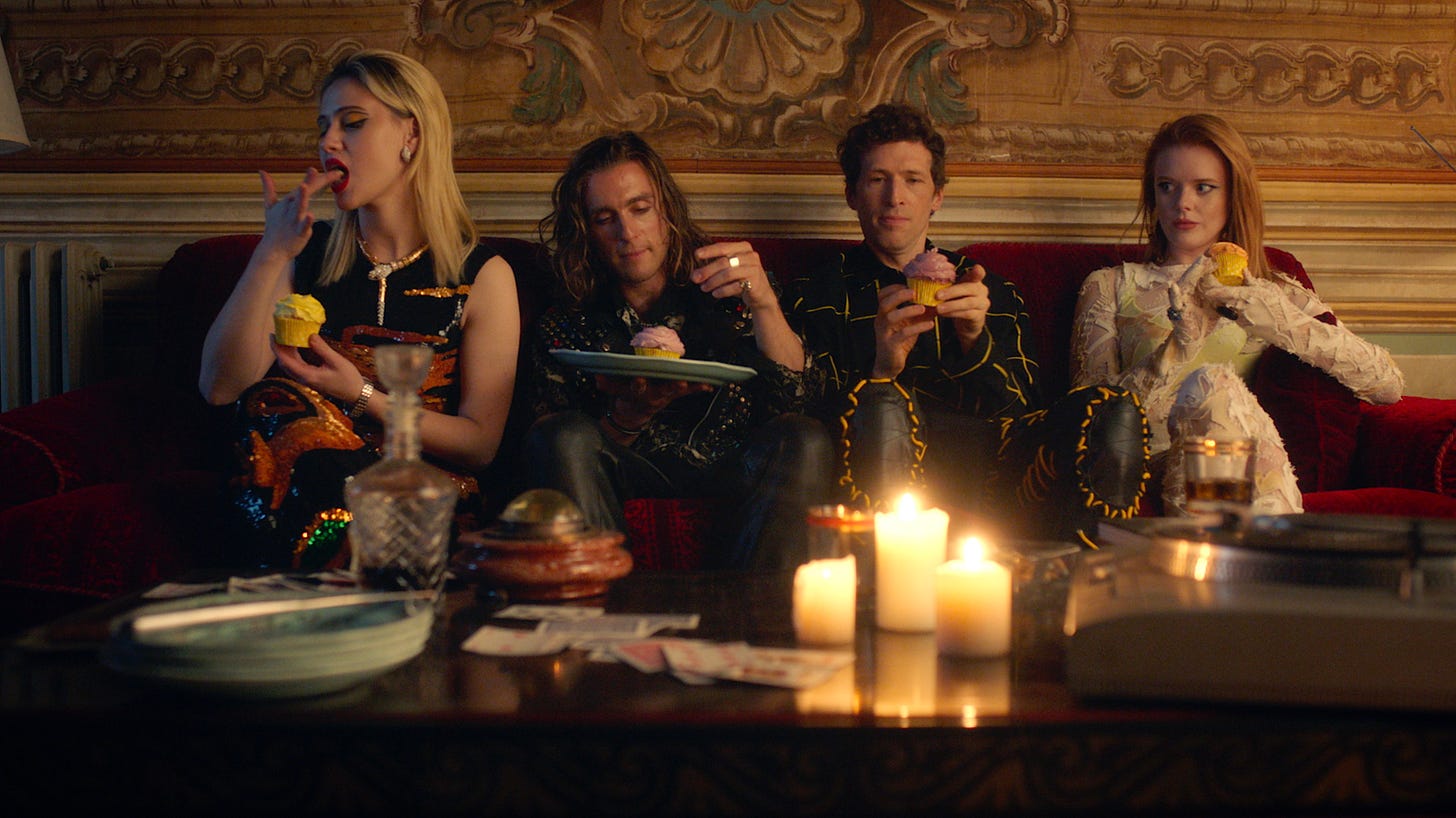Opens in NY on April 27 at the Roxy. Available on digital platforms and in other theatres on May 2nd
Describe the film for us in your own words.
Things are not what they seem. Italy. Deception.
What drew you to this story?
I’ve always been drawn to stories where the line between real and fake starts to blur. In Electra, that tension lives in the characters identities and the masks they wear, sometimes to protect themselves, sometimes to manipulate others. It’s interesting how often people think they need to perform or pretend, when the most compelling thing, the thing that actually connects us, is just being yourself.
What do you want people to think about?
I see Electra as a cautionary tale; about what happens when we bury our feelings, avoid hard truths, and leave things unresolved. The past has a way of creeping back in, especially when we pretend it’s been dealt with.
What was the biggest challenge in making this?
The limited time and budget we had which is the classic challenge for any director. I didn’t have the luxury to storyboard or prep every scene, so I had to rely on instinct. It pushed me into a new kind of confidence. Luckily, I was standing on the shoulders of an incredibly talented and dedicated team. I owe everything to them.
What was the development process? How did you get green lit?
First, we wrote an outline while on vacation in Sicily after a friend asked me to shoot a fashion film at her godmother’s gorgeous palazzo. I was like, “hey, can we do a feature instead?” She said “sure.” Once the outline was done, we shared it with an actor, he attached pretty quickly once he heard it was in Italy, and when we passed that along to a financier, and fortunately we were green-lit almost immediately. (Of course, both the actor and the “free” palazzo ended up falling through. so it wasn’t exactly smooth sailing.) I swear this isn’t my usual luck. I was stuck on another script for ten years… so in a way, Electra became my savior.
What inspired you to become a storyteller?
I never grew out of playing pretend and letting my imagination run free. I love getting lost in other worlds. I definitely don’t always live in reality.
What’s the best and worst advice you've received?
Best: Remember to enjoy yourself on set because opportunities to direct are few and far between.
Worst: “Think about what sells” when approaching your next screenplay. The one time I tried that, writing became painful, nothing flowed. It was like being constipated. I’ve learned that if you’re not enjoying the creative process, it’s probably not the right project. (Of course, if it’s work-for-hire, that’s a different story.)
What advice do you have for other female creatives?
I’ve never really thought of myself as a female creative, I just write and direct as me. That said: be bold, don’t take no for an answer, and speak up. Most importantly, speak your truth. That’s where the real power is.
Name your favorite woman-directed film and why.
Lost in Translation. This film will never age for me. I love its rhythm, the power of the silences, and how Sofia Coppola turns mundane moments into poetry. It feels so honest and vulnerable. It is a beautiful snapshot of love and longing.
Feel free to share anything else you’d like people to know about this film.
We shot it in the same palazzo where the actors and some of the crew were staying. It was slightly crazy and felt like summer camp but in the best way. That closeness created trust, and I think it shows on screen. I had so much fun shooting and playing with the actors, and I carried that same energy into the edit. It was the rest time I truly enjoyed post-production as much as being on set. In both phases, I tried to bring in a sense of play, freedom, and experimentation.



